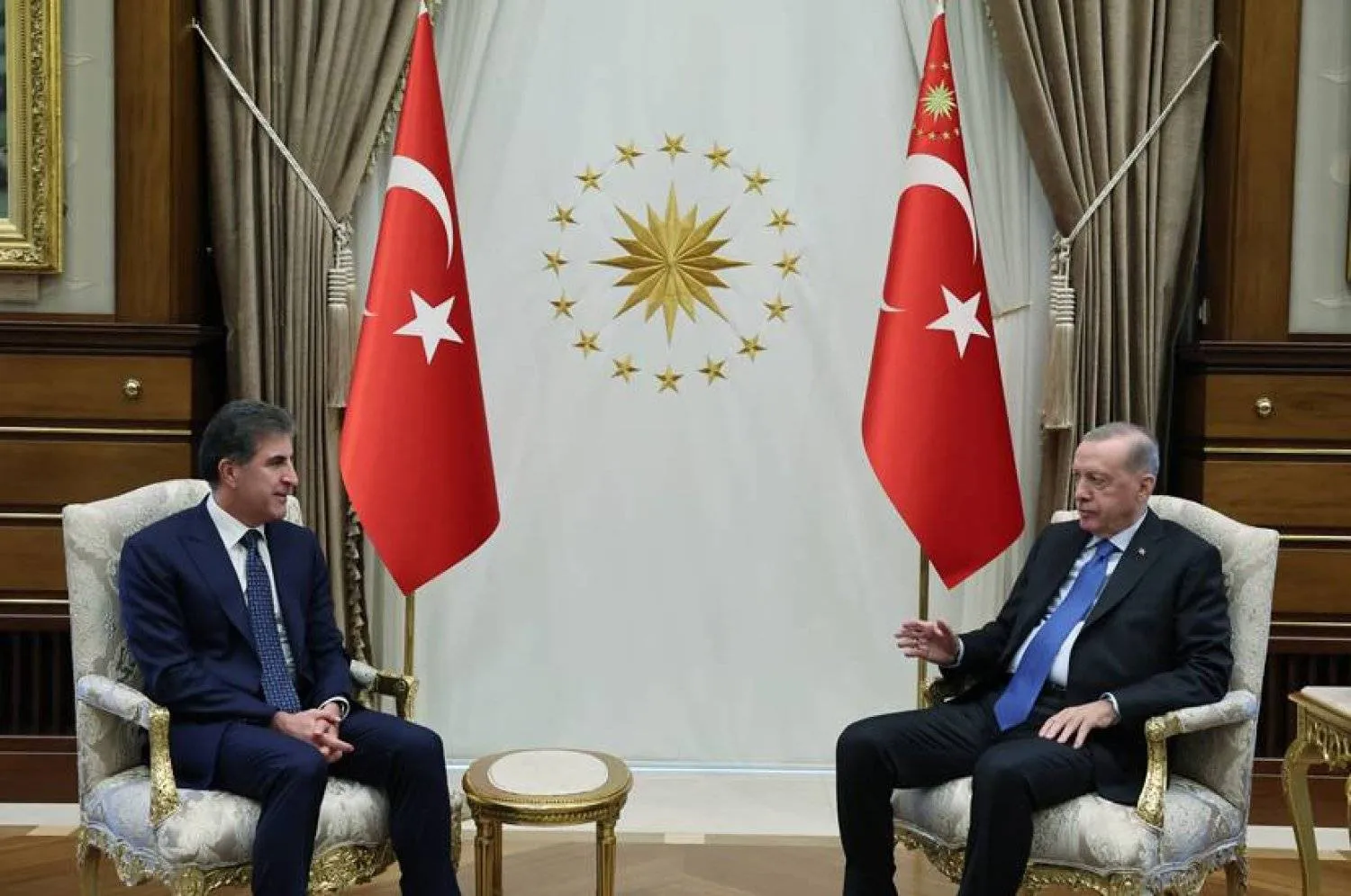The President of Iraq’s Kurdistan Region, Nechirvan Barzani, visited Türkiye at a critical time for both Ankara and Erbil, amid regional tensions, particularly with Israel expanding the scope of war in the region.
Before meeting with Turkish President Recep Tayyip Erdogan, Barzani held discussions with Foreign Minister Hakan Fidan and intelligence chief Ibrahim Kalin.
According to a statement from the Turkish Presidency’s Directorate of Communications, the meeting between Erdogan and Barzani at the presidential palace on Wednesday covered relations between Ankara and Erbil, regional security issues, and energy concerns.
Discussions also touched on Türkiye’s relations with Baghdad and Erbil, as well as regional developments amid the Israeli escalation and the potential impact of the war between Israel and Hezbollah in Lebanon on Iraq and other countries.
Barzani’s visit to the Turkish capital also comes amid growing signals of a new initiative to resolve the Kurdish issue in Türkiye. The visit precedes the upcoming parliamentary elections in Iraq’s Kurdistan Region, scheduled for this Sunday, after being postponed for two years.
The Turkish presidency’s statement indicated that Erdogan expressed hope for peaceful and inclusive elections and, in discussing the Israel-Hamas war in Gaza and its spillover into Lebanon, warned of the risk that Israeli aggression could lead to a broader regional war. He emphasized his country’s commitment to regional stability and security and praised the Iraqi authorities’ efforts to keep the country out of the conflict.
Türkiye views Iraq’s stability as crucial for the future of the region and aims to improve relations with Baghdad. Ankara places great importance on resolving issues between the central government in Baghdad and the Erbil government, with which it has built close ties, particularly in security, economy, and energy.
According to Turkish sources speaking to Asharq Al-Awsat, these matters were thoroughly discussed during Barzani’s meetings with Turkish foreign and intelligence officials, as well as in his meeting with Erdogan. Security cooperation, particularly in combating the Kurdistan Workers’ Party (PKK), was a priority during Barzani’s talks in Ankara.
Ankara and Baghdad have taken significant steps in their “war on terrorism” over the past year through rounds of security and economic talks, culminating in Erdogan’s visit to Baghdad in April. They agreed to collaborate against PKK elements in northern Iraq. This cooperation evolved in August into an agreement to establish a military coordination center in Baghdad and use the Bashiqa base, long controlled by Turkish forces, as a joint Turkish-Iraqi training center.
One of the key agenda items in talks between Ankara, Erbil, and Baghdad over the past 18 months has been the resumption of the Kirkuk-Ceyhan oil pipeline. The latest developments in this issue were discussed during Erdogan and Barzani’s meeting. Türkiye had previously informed Iraq of its readiness to resume the pipeline’s operations, but ongoing disputes between Baghdad and Erbil have delayed this step.
Barzani’s visit to Ankara also coincided with internal Turkish political signals suggesting the government might initiate a new “peace process” to address the Kurdish issue. These indicators have gained momentum following a historic handshake between the leader of the Nationalist Movement Party (MHP), Devlet Bahceli, and members of the pro-Kurdish Peoples’ Democratic Party (HDP) during the opening of the new legislative year in early October. Erdogan expressed support for this gesture by his coalition partner.
Political analyst Murat Yetkin noted that Barzani’s visit might be linked to this new peace initiative. He pointed out that, on the day Barzani’s visit was announced, Bahceli delivered a message in parliament to the imprisoned PKK leader Abdullah Ocalan, urging him to call on his organization to lay down its arms. This was followed by demands from the HDP co-chair for an end to Ocalan’s 43-month isolation in his prison in western Türkiye.









